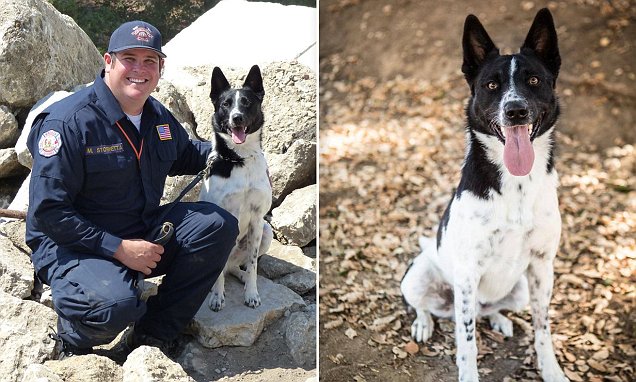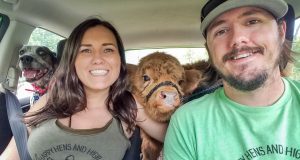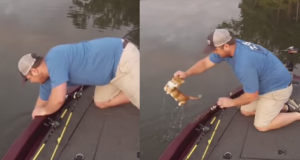This So-Called “Unadoptable” Dog Now Has A New Life, Helping Victims Of Disasters.

A former shelter dog who at one time was due to be put down because he was believed to be ‘too energetic’ to be adopted is now helping to save lives in the aftermath of Hurricane Harvey.
Rocket, who is a black and white border collie mix ended up traveling to Texas with his handler Mike Stornetta of the Windsor Fire Protection District in California.
The dog has been helping his colleagues with ‘search and rescue missions in the hardest hit areas.’
But just five years ago the poor pooch was on a Sacramento shelter’s euthanasia list because it was felt nobody would want to adopt him.
But staff at the shelter saw things differently and believed the dog to have ‘promising search dog characteristics’ and contacted the National Disaster Search Dog Foundation to see if he might be a fit for their organization.
A volunteer there, Andrea Bergquist, whose husband is a dog handler, thought the dog’s seemingly boundless energy could be put to good use and she ended up adopting him.
After an initial evaluation in 2012, the dog was not found to be a good fit but one year later after some intensive training, he was finally accepted as a search dog.
The pooch was partnered with Stornetta in August 2014 and the pair gained their FEMA certification soon after and were deployed as a team to deal with the aftermath of an aircraft crash in 2016.
In the days since Hurricane Harvey hit Texas, Rocket has been deployed to Houston for the last few days assisting search & rescue teams with their recovery efforts.
Andrea told CBS News that it was ‘truly amazing to see how far he’d come.
”I’m overwhelmed to think of all of the people and time and effort that has gone into a stray dog that no one wanted,’ she said in a posting on Facebook. ‘This is what it’s all about!’.
‘I think it’s just a testament that, just because an animal ends up in the shelter doesn’t mean that they are an animal that someone doesn’t want or that they don’t have a lot to give to the community,’ the society’s spokeswoman, Dawn Foster said to the Sacramento Bee.



What are your thoughts?